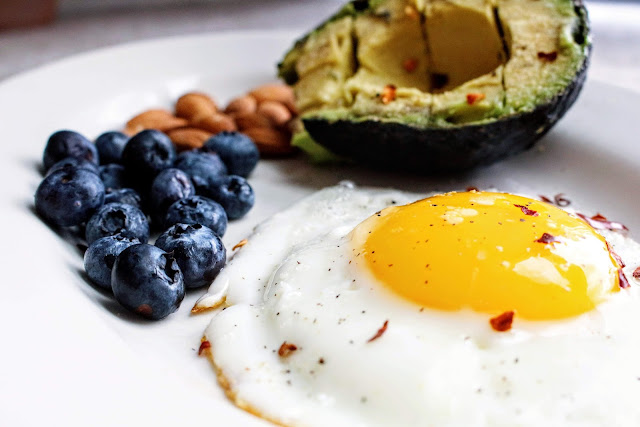Food poisoning: how to recover and prevent it
Food poisoning is a group of symptoms resulting from eating food contaminated with bacteria, or toxins secreted by these organisms. Food poisoning also results from eating food contaminated with different types of viruses, germs, parasites, and toxic chemicals, such as poisoning caused by eating mushrooms.
Food poisoning, while common, is easily preventable, with about 85% of infections preventable by proper food handling and preparation.
Most people with food poisoning do not need to go to the hospital. Its most common symptoms are stomach inflammation, vomiting, and diarrhea, and these symptoms usually subside after 48 hours.
Severe symptoms include blood in the stool, severe abdominal cramping, blurry vision, and diarrhea that lasts more than three days. These are all indications for seeking medical attention.
A person can often deal with mild to moderate food poisoning without a prescription. Symptoms can begin after eating contaminated food within a few hours, but the incubation period can also be longer, depending on the pathogen.
Causes of food poisoning
There are many causes of food poisoning, but five main ones are responsible for most foodborne illnesses, including:
Norovirus: commonly found in shellfish, fruits, and vegetables.
Salmonella bacteria: usually found in eggs, meat, and dairy products.
Clostridium perfringens: found in meat and poultry.
.Campylobacter: a severe bacteria that has been linked to tainted water and undercooked meat.
Staphylococcus is primarily present in all kinds of animal products, including cream, eggs, and milk.
Salmonella and noroviruses are responsible for most hospitalizations of food poisoning. The groups most at risk of food poisoning complications include infants, pregnant women, the elderly, and people with chronic conditions such as HIV, liver disease, or diabetes.
What do you do after you get food poisoning?
Diarrhea and vomiting can lead to an imbalance of fluids and electrolytes in the body. Electrolytes are minerals, like sodium and potassium, that help with everything from maintaining a normal heartbeat to controlling how much water you have in your body. So you should:
Allow the stomach to rest, meaning avoid food and drink completely for a few hours.
Maintain body moisture by drinking plenty of fluids. Drink water, chicken and vegetable broth, or an electrolyte solution, which will replace minerals lost with vomiting and diarrhea. Other options include caffeine-free tea, ginger or lemon tea, as well as peppermint tea, which may also help calm an upset stomach.
When you feel hungry or unable to eat, eat foods that are easy to digest. This could mean following a diet for an upset stomach known as the BRAT diet which is one of the main dietary recommendations for recovery from digestive ailments and includes bananas, rice, applesauce, and toast. This diet is ideal for helping a person recover because the four foods are high in starch, which reduces diarrhea.
You can also eat grilled chicken without skin, turkey, egg whites, white honey, jelly, oatmeal, peanut butter, and mashed potatoes.
These foods are good to eat because of their softness, starch content, and nutritional content.
They also provide the body with the protein it needs to help the recovery process and prevent muscle breakdown in the absence of enough food and calories.
It is also recommended to eat natural yogurt or probiotic capsules for at least two weeks. This will help the body replenish healthy bacteria lost from the digestive tract due to food poisoning symptoms and restore the digestive and immune systems on the right track.
Delaying tooth brushing by at least an hour, as stomach acid expelled during vomiting can damage tooth enamel, and brushing teeth immediately after vomiting can lead to increased enamel erosion. Instead, rinse your mouth with a mixture of water and baking soda.
Once a person can maintain eating these soft foods, they can return to their normal diet within 48 hours.
Foods and drinks that should not be consumed after food poisoning
Dairy products
Dairy foods such as cheese, ice cream, and milk can increase stomach irritation after food poisoning, so they should be avoided in favor of soft drinks and less irritating foods.
High-fat foods
Fried foods such as fried chicken, french fries, and other high-fat items can cause rapid stomach emptying and worsen diarrhea symptoms.
Spicy food
Spicy foods that contain a lot of spice and salt along with chili peppers can irritate the stomach and lead to an upset stomach.
Foods that cause bloating
There are some foods, despite their nutritional value, that can cause gases because they contain a group of sugars that the body faces problems absorbing, and these foods include beans, cowpeas, cabbage, cauliflower, onions, and garlic.
Caffeinated drinks
Avoid caffeinated drinks such as soda, energy drinks, and coffee, as they can irritate the stomach and some of them may cause the body to lose more fluids and make it more dehydrated. Smoking of all kinds should also be avoided.
Dietary recommendations for the recovery period from food poisoning
Ways to prevent food poisoning diseases
To prevent food poisoning diseases, an attempt must be made to prevent the microbe from reaching the food and to prevent the growth of the microbe and eliminate it.
Buy foods only from trusted sources, and avoid street vendors.
Wash hands thoroughly with soap and water before and after preparing food and before and after eating it.
Paying attention to the cleanliness and disinfection of kitchen appliances and utensils, and washing them well after using them in the preparation of raw foods (such as meat and poultry), as this reduces the chances of cross-contamination between raw and cooked foods.
Do not leave cooked food for more than two hours at room temperature to prevent the growth and multiplication of microbes.
When you want to store cooked food, the food must be cooled to a temperature of fewer than 5 degrees Celsius by keeping it in the refrigerator.**





.png)




0 Comments